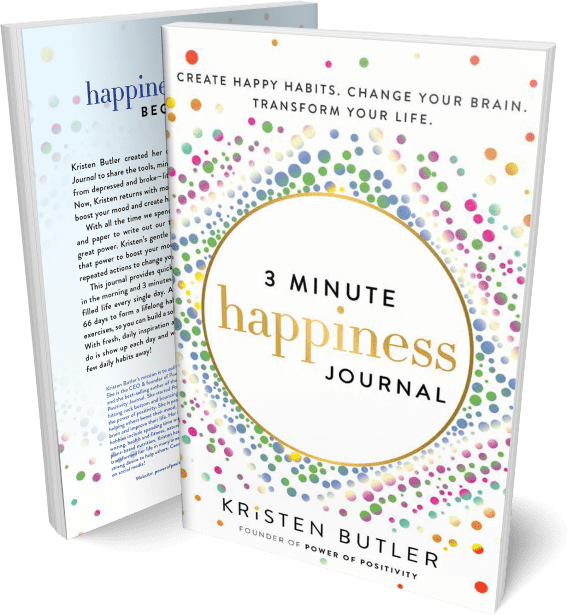Avoid these words when you argue with a loved one.
Arguments are a natural part of human interactions. But how we handle them what we say while we argue can greatly impact our relationships and mental health. In the heat of the moment, it’s easy to let emotions take over and say things that worsen the situation.
This article explores the impact of words, fifteen phrases that can escalate arguments, alternative expressions to show understanding, and resolution after the argument ends.
Understanding the Impact of Words in Arguments
Before we look into the specific phrases that can worsen arguments, it’s crucial to appreciate words’ profound impact on our interactions. The language we choose during a disagreement holds the power to either bridge gaps or deepen divides. This influence extends far beyond the content of what is said. In fact, it encompasses how we say it, the tone we use, and the context in which the words are spoken. It also encompasses the intent behind them – and how the other party receives them.

The tone of our voice can convey a multitude of emotions. To name just a few:
- Anger
- Sarcasm
- Calm
- Compassion
- Fear
Each elicits different responses from the listener. Albert Mehrabian’s 55/38/7 Communication Model shows how tone can often communicate more than the actual words used. For instance, a statement made in a harsh tone can seem aggressive, even if the words are neutral.
Context also plays a pivotal role. The same phrase can have altogether different meanings depending on the situation. In a heated argument, a comment might be interpreted as criticism. Conversely, the same comment in a calm discussion could be constructive feedback. That’s why understanding the context and adapting our language is key to effective communication.
Moreover, our intent – or the purpose behind our words – is critical. Are we deliberately trying to hurt or control the other person? Are we attempting to convey frustration? Or do we honestly hope to find a solution? Words spoken with the intent to harm or belittle can cause lasting damage to relationships. On the other hand, words used to understand and resolve can foster stronger bonds and mutual respect.
It’s also important to consider the listener’s perspective. What might seem like a straightforward statement to one person could be received as a deeply hurtful remark by another? That is where emotional intelligence comes into play, allowing us to anticipate and understand how others might interpret our words.
Finally, words we utter while we argue can shape our reality and influence our mindset. The language we use can affect how we perceive a conflict and how we approach its resolution. We can steer conversations towards a positive outcome when choosing more positive and solution-focused words.

Avoid These 15 Phrases During Arguments
Here are some inappropriate, unhelpful things to avoid saying in the heat of the moment:
1 – “You Always Do This”
- This phrase is an absolute statement that generalizes a person’s behavior, making them defensive. It shuts down any chance of constructive dialogue.
- What to Say Instead: “I’ve noticed this happens often. Can we talk about why?”
2 – “You Never Listen to Me”
- Similar to the first phrase, this one also uses absolutes. It implies a total lack of effort or care from the other person.
- What to Say Instead: “I feel like I’m not being heard. Can we discuss this?”
3 – “I Don’t Care”
- Saying “I don’t care” dismisses the importance of the issue and the other person’s feelings.
- What to Say Instead: “I’m finding it hard to connect with this issue. But I really want to understand your perspective.”
4 – “Whatever”
- “Whatever” is a dismissive term that shows indifference. It can also be hurtful, invalidating the other person’s input into the discussion.
- What to Say Instead: “I need some time to think about this before we continue our conversation.”
5 – “It’s Your Fault”
- Blame is a surefire way to escalate an argument. It puts the other person on the defensive and avoids shared responsibility.
- What to Say Instead: “Let’s look at how we both contributed to this situation.”
6 – “You’re Overreacting”
- This phrase invalidates the other person’s feelings and experiences as you argue about an issue.
- What to Say Instead: “Your reaction seems strong; can you help me understand why you feel this way?”
7 – “Calm Down”
- Telling someone to calm down often has the opposite effect. It can be perceived as patronizing.
- What to Say Instead: “I can see you’re upset. Let’s take a few moments to breathe before we continue.”
8 – “You Don’t Know What You’re Talking About”
- This phrase dismisses the other person’s knowledge or feelings on the subject. The person may know about the topic but struggle to express it clearly.
- What to Say Instead: “I see this differently. Can you explain your perspective more?”
9 – “This Is Stupid”
- Calling the issue or argument stupid is dismissive and disrespectful. It has no way to advance a constructive conversation on the topic.
- What to Say Instead: “I’m struggling to see the importance of this issue. Can you help me understand?”
10 – “I’m Done Talking”
- Shutting down the conversation doesn’t resolve anything and can leave issues unresolved.
- What to Say Instead: “I need a break. Can we revisit this conversation later?”
11 – “You’re Just Like Your [Family Member]”
- Comparing someone to a family member in a negative light can be deeply hurtful and unproductive. After the current discussion ends, you will be on the hook for insulting someone the other party loves.
- What to Say Instead: “I notice a pattern that concerns me. Can we talk about it?”
12 – “You Should Have Known”
- This phrase implies an expectation of mind-reading and is unrealistic.
- What to Say Instead: “I wish there had been better communication about this.”
13 – “That’s Crazy”
- Labeling someone’s thoughts or feelings as crazy is demeaning. It also lends itself to stigmas or calls into question the other party’s mental health.
- What to Say Instead: “That’s surprising to me. Can you explain more?”
14 – “You’re Being Too Sensitive”
- This phrase invalidates the person’s feelings and experiences. Moreover, some people are actually more sensitive. They cannot help it; it’s how they’re built.
- What to Say Instead: “Your feelings are important. Can you share why this affects you deeply?”
15 – “I Don’t Want to Talk About This Anymore”
- Refusing to talk about an issue can leave unresolved feelings. Walking away solves nothing and can make the other person feel abandoned.
- What to Say Instead: “I’m finding this conversation challenging. Can we take a break and revisit it?”
Healing the Rift After You Argue
Even when handled with care, arguments can leave a rift in relationships. Healing this rift involves a process of accountability, apologizing, making amends, and moving on healthily. This section explores these steps, supported by evidence on effective relationship repair strategies.
What is accountability?
Accountability is acknowledging your role in the argument. It’s about owning up to your actions and their impact without excuses or deflection. Taking responsibility for one’s actions – owning up to mistakes – is crucial in repairing trust.
Implementing Accountability:
- Reflect on your actions and their consequences.
- Acknowledge your part in the argument without shifting blame.
The Art of Apologizing
An apology is more than just half-heartedly saying, “I’m sorry.” It demonstrates remorse for your actions and their effects on the other person. An apology is a chance to own up (accountability) and express your regret for the words or actions that led to the heated discussion. It’s also appropriate to apologize for hurtful words you said while arguing.
Giving a Meaningful Apology:
- Express remorse genuinely.
- Acknowledge the specific harm caused.
- Explain your understanding of why your actions were hurtful.
Making Amends
Making amends, when appropriate, is a proactive step towards repairing the relationship. It shows a commitment to change and to do better in the future. Reparative actions can significantly improve relationship satisfaction post-conflict.
Steps to Make Amends
- Offer to rectify the situation, if possible.
- Discuss ways to prevent the same or similar issues in the future.
- Commit to positive changes in behavior.
Moving On Constructively
Moving on from an argument is crucial for the health of the relationship. It involves a conscious decision not to use the argument as a weapon in future disagreements. A report in the American Psychological Association highlights the importance of forgiveness and letting go of grudges for mental health and relationship stability.
Strategies for Moving on:
- Agree to leave the argument in the past.
- Focus on positive aspects of the relationship.
- Engage in constructive communication in the future.
Healing after you argue with someone is a vital, though often challenging, part of any relationship. It requires a combination of accountability, sincere apologies, making amends, and a commitment to move forward positively. These steps, grounded in psychological research, can help mend the rifts caused by arguments, leading to stronger, more resilient relationships.
Final Thoughts on Avoiding the Phrases that Worsen Arguments
Effective communication is key in resolving conflicts. By being mindful of our phrases, we can create a space for understanding and problem-solving. Remember that people who truly care about one another sometimes argue. But it’s not about winning an argument but finding a solution respecting everyone involved. Even the most challenging discussions can lead to positive outcomes with patience and empathy.



















